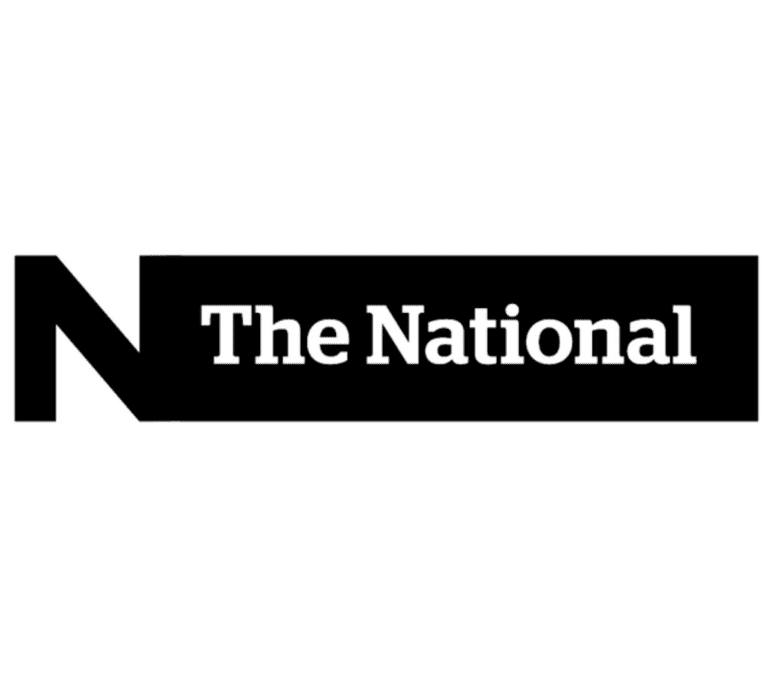
CBC’s The National: How Climate Change Can Impact Your Health
Dr Danielle Martin “phones a friend” to consult Dr Howard about the health impacts of climate change, including Lyme Disease, hay fever, wildfires and more.

Dr Danielle Martin “phones a friend” to consult Dr Howard about the health impacts of climate change, including Lyme Disease, hay fever, wildfires and more.

CTV NEWS “VANCOUVER — Canadian medical schools have not adequately addressed the urgent need for training related to planetary health and climate change, and members of the Canadian Federation of Medical Students say that must change.”

Framing climate change in terms of health has been shown to generate hopeful emotions, and nurses and doctors are some of society’s most trusted messengers. Integrating health into the dialogue may be the best way to create a narrative that unifies populations around a shared desire for a healthy response to climate change.
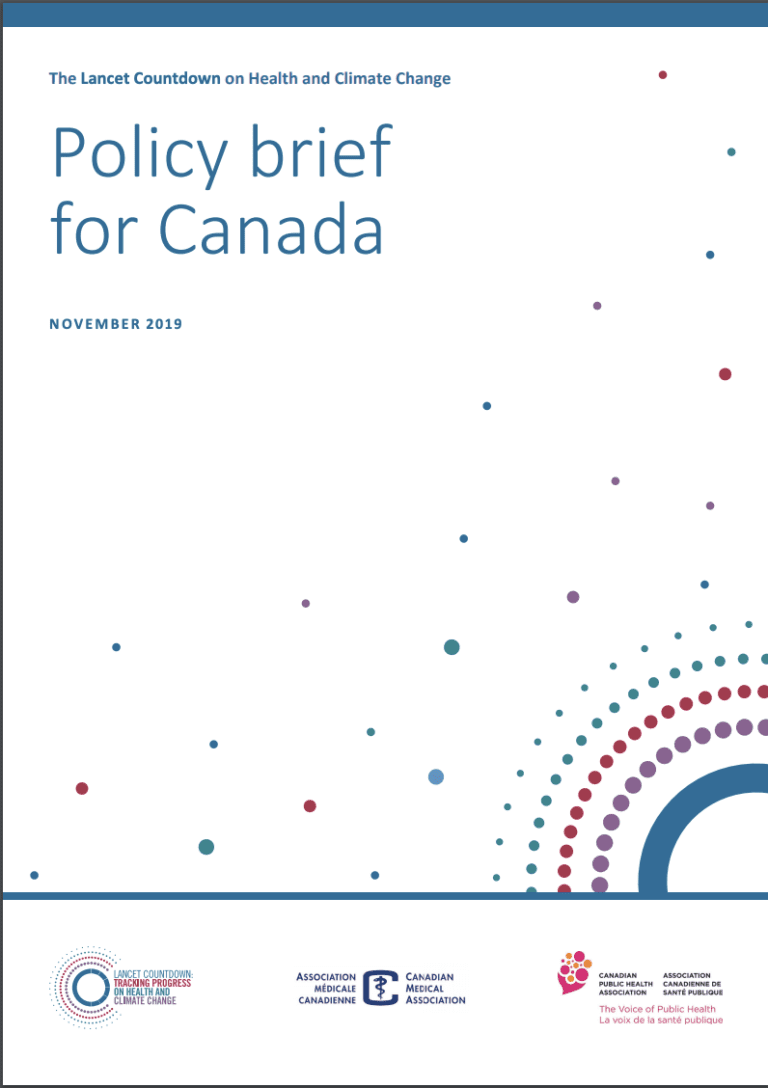
Climate change is the biggest global health threat of the 21st century,
1 and tackling it could be our greatest health opportunity.2
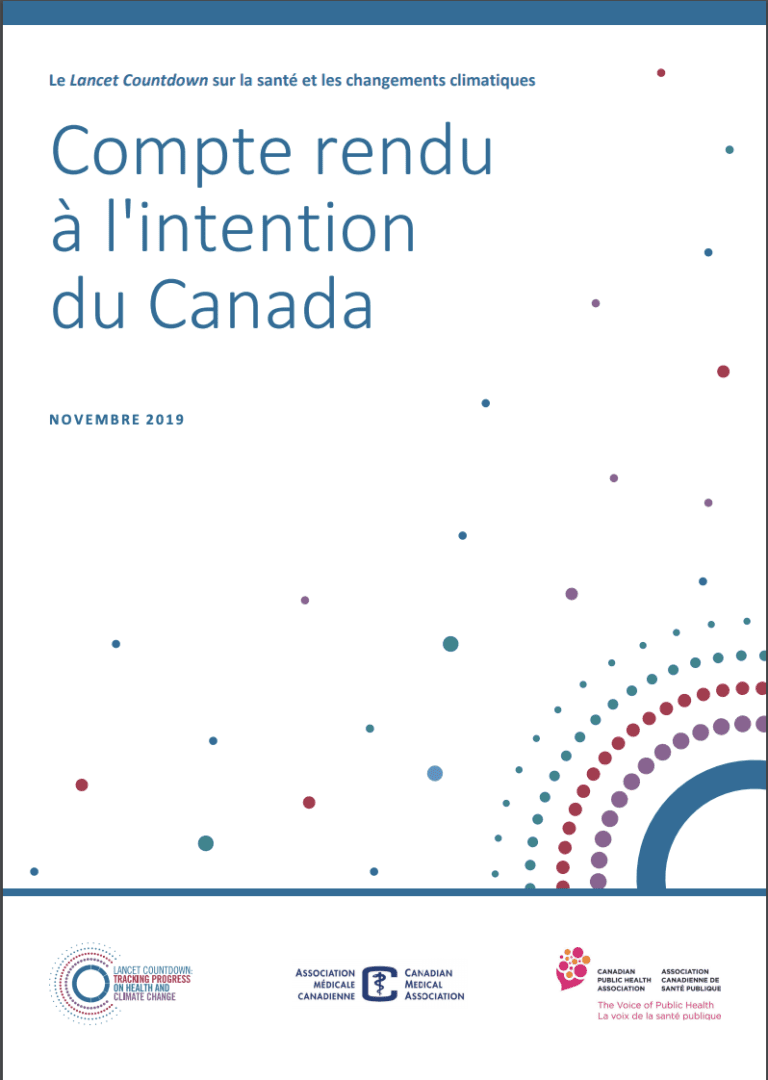
“Les changements climatiques constituent la plus grande menace du 21e siècle pour la santé mondiale, mais notre réaction à ces phénomènes
pourrait aussi s’avérer « la conjoncture favorable du siècle »
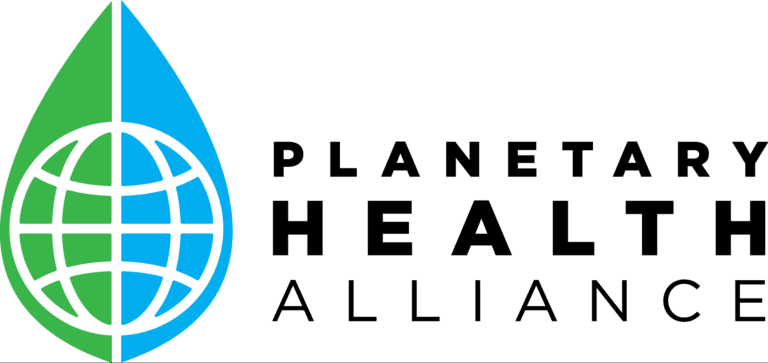
As part of the newly launched Clinicians for Planetary Health initiative, which galvanizes health professionals across the globe to take action on environmental challenges, Planetary Health Alliance is excited to showcase profiles of visionary and impactful leaders from the healthcare community dedicated to planetary health. We hope these interviews and stories provide insight, inspiration, and ideas for ways to incorporate planetary health principles into your own work.
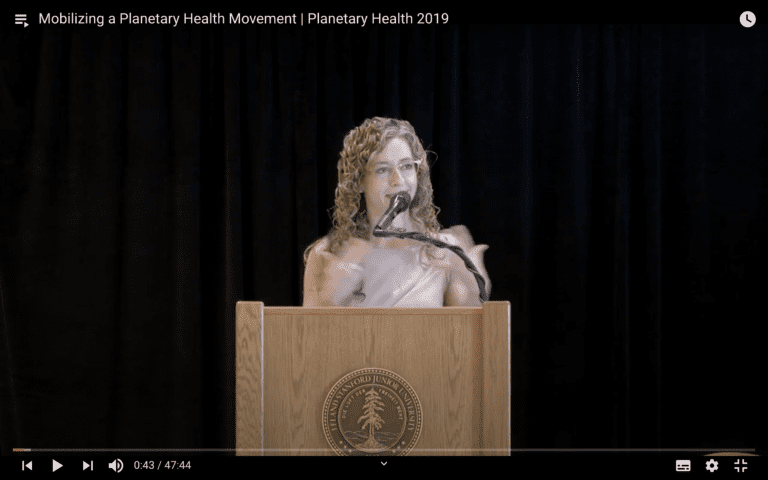
PLANETARY HEALTH ALLIANCE CONFERENCE Dr. Courtney Howard at the Planetary Health Alliance conference.

MACLEAN’S MAGAZINE “What will it take for popular opinion to catch up with the terrifying science? We talk to Canada’s top climate change experts.”

Doctors and economists may seem like strange partners. We spend our days working on very different problems in very different settings. But climate change has injected a common and urgent vocabulary into our work. We find ourselves agreeing both about the nature of the problem and the best solution. It’s essential that we put a price on carbon pollution.

Publié dans Chatelaine Magazine le 7 juin 2019.
« Ce médecin des ER de Yellowknife fait la sonnette d’alarme au sujet de l’impact du changement climatique sur la santé mentale.
Bien que de grandes parties du sud du Canada ressentent les effets des changements climatiques — feux de forêt incontrôlés, tempêtes qui se produisent maintenant une fois par année — les gens qui vivent dans le Nord sont en première ligne depuis longtemps. Là, la hausse des températures a entraîné, entre autres, le dégel du pergélisol, des conditions météorologiques considérablement instables et la diminution des populations de caribous.

CHATELAINE MAGAZINE “This Yellowknife ER doctor is raising the alarm about the mental health impact of climate change.”
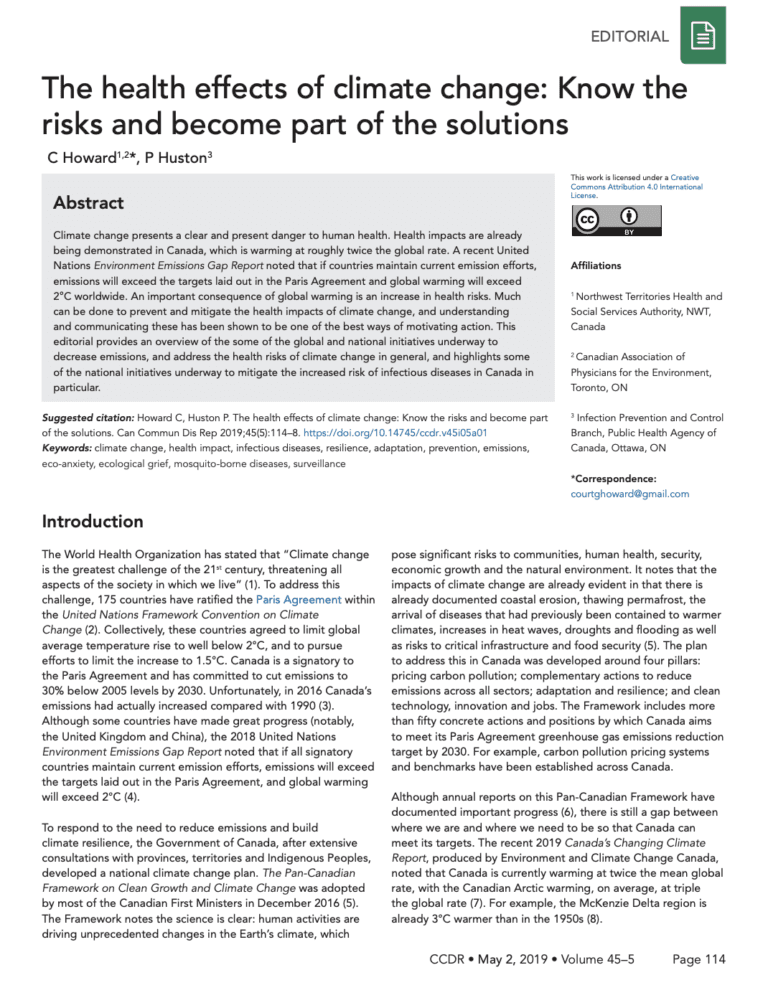
Abstract Climate change presents a clear and present danger to human health. Health impacts are already being demonstrated in Canada, which is warming at roughly twice the global rate. A recent United Nations Environment Emissions Gap Report noted that if countries maintain current emission efforts, emissions will exceed the targets laid out in the Paris

En tant qu’êtres humains, nous aimons penser dans les catégories, mais la vérité est que nous n’avons jamais vécu dans un monde où la santé des humains, des écosystèmes et de la planète pourrait être efficacement abordée en silos. Les effets graves et de grande ampleur du changement climatique, la plus grande menace pour la santé du XXIe siècle selon l’Organisation mondiale de la santé, nous obligent à affronter et à s’attaquer à cette réalité. En plus de nous occuper de la santé humaine, nous devons également nous concentrer sur la santé de la planète. La santé planétaire telle que définie en 2015 par « Lancet », est « la santé de la civilisation humaine et les systèmes naturels dont elle dépend ».

THE HILL “As humans, we like to think in categories, but the truth is we’ve never lived in a world where the health of humans, ecosystems and the planet could be effectively addressed in silos.”
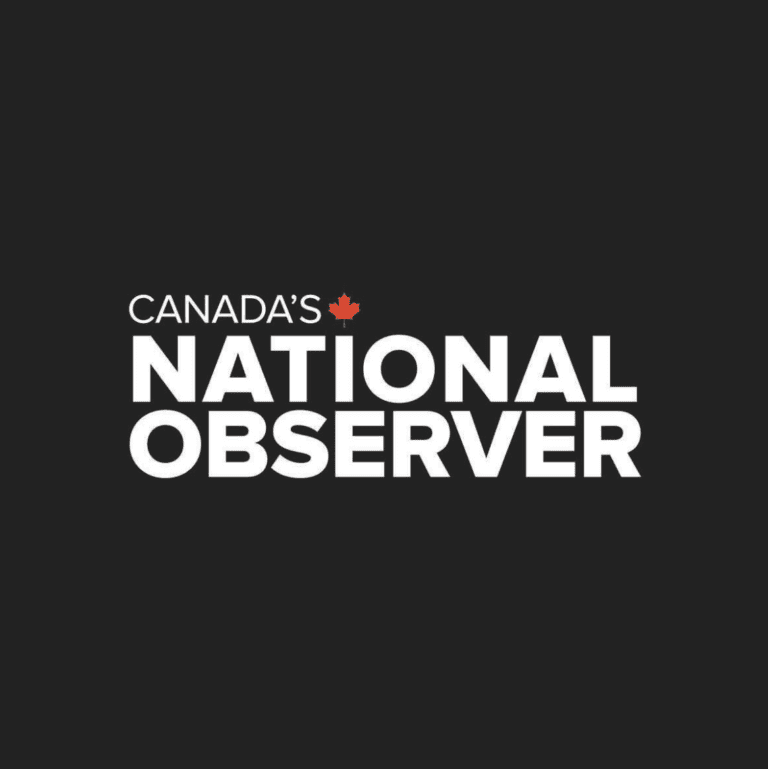
15 mars, les Ides de mars. Des centaines de milliers de jeunes et d’alliés sont dans les rues, marchant pour une planète plus saine: les images apportent des larmes à mes yeux.
Il y a un sentiment d’un diagnostic fait, en masse. Les enfants du monde ont évité le système créé par les adultes, les écoles, comme étant inadéquates pour le moment. Ils se regardent dans les yeux, confirmant que le changement climatique est une menace existentielle pour leur santé et leur bien-être, et que leurs aînés n’ont pas réussi à les protéger. Le leadership des adultes est remis en question à l’échelle mondiale sans précédent.

“There is a sense of a diagnosis being made, en masse. The children of the world have shunned the system created by adults—the schools, as being inadequate to the moment. They are looking into each other’s eyes, confirming that climate change is an existential threat to their health and well-being, and that their elders have failed to protect them.”

On my way home from COP24 in Poland I stopped by the Agenda studio to talk LancetCountdown 2018 and about how discussing climate change as what it is—a health issue, can help to get us all pulling in the same direction towards a healthy response.
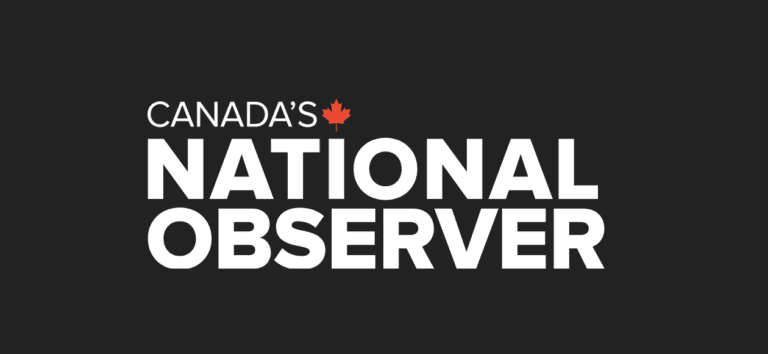
“When I called Courtney Howard, one of the authors of the recent Lancet Countdown 2018 Report on health and climate change, she was Christmas shopping during a pit stop in London on her way to the 24th United Nations Climate Change Conference in Katowice, Poland.”

“Heat waves, forest fires, flooding and major storms are causing more deaths, says a new report.”
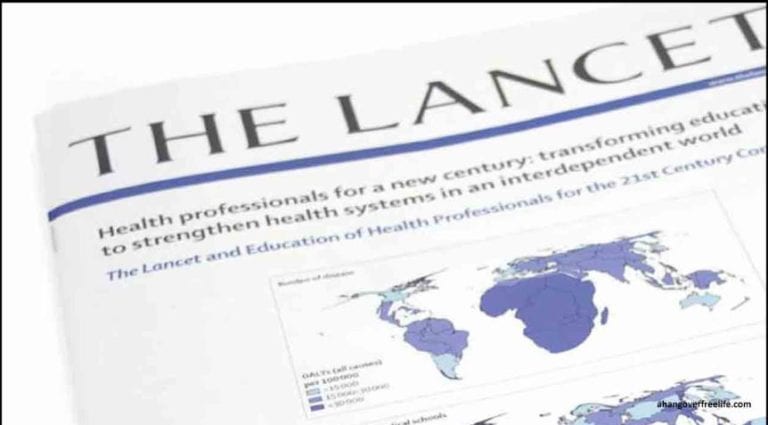
The health impacts of climate change demand an urgent response, with unmitigated warming threatening to undermine health systems and core global health objectives.

This briefing, launched in parallel with the 2018 Lancet Countdown report, focuses on the links between health and climate change, and their implications for the UK’s Government, public sector, businesses, and citizens.

“Dr. Courtney Howard – an Emergency Room Physician in Yellowknife, NT and primary author on the Lancet Countdown 2017 Report: Briefing for Canadian Policymakers– joined the Women’s Health Institute to present at the Third Annual Women’s Health Research Symposium on May 9th, 2018. Her talk, Climate change and women’s health in the North, and breakout session on climate change were focused on opportunities to improve women’s health outcomes while fighting climate change.”
Although I trained mostly in large academic centres, I’ve spent much of my medical life practicing at the remote end of bumpy highways. There is an elegance to it—an instant humility brought about by limited resources, a ‘we’d better stick together or we’re sunk’ solidarity amongst staff that evaporates much of the posturing that can
Chainsaw Buyback: Just Transition in the Bornean Rainforest One of my take-homes from attending the COP23 climate change negotiations in November was just how strongly environmental and labour groups are now, rightly, pushing for a “Just Transition†to ensure that workers are supported as we move from a fossil-fuel economy to a low-carbon one.
Morning Meeting All staff, including people in charge of healthcare, conservation, agriculture, driving, education, finances and more, get together at 8AM Monday to Friday at ASRI for morning meeting. Hoping to be as helpful as possible during my visit, I’d emailed my friend Dr Anne-Marie Pegg, who has a tremendous amount of experience heading up
Consistent with rapid deforestation rates in much of the Bornean rainforest, more than 70% of the lowland forests within Gunung Palung National Park’s buffer zone were deforested between 1988-2002. During sequential surveys done by ASRI/HIH, they found 1,350 logging households around the park at baseline in 2007. ASRI’s clinic and conservation program opened in 2007—and
ASRI/Health in Harmony take data from their village surveys to determine which widowed women in the area may benefit from goats. The women receive 1-2 goats, then repay ASRI in goats once the animals procreate. There are about 200 widows in the program. A goat sells for about 2-2.5 million rupiah in an area with
Paying for Healthcare With Manure? For real. ASRI-Borneo’s head MDÂ Dr Nomi explains how rainforest-conservation incentives are built into their hospital’s payment scheme. Imagine if all healthcare systems took Planetary Health into account?
We arrived here last week, sweaty, towing our children, to find two giant posters of icebergs (I took them to be the Arctic on our first day–it is possible they are at the South Pole.)  It was astonishing to come to the jungle and find icy iconography.  We definitely don’t have any photos of orangutans